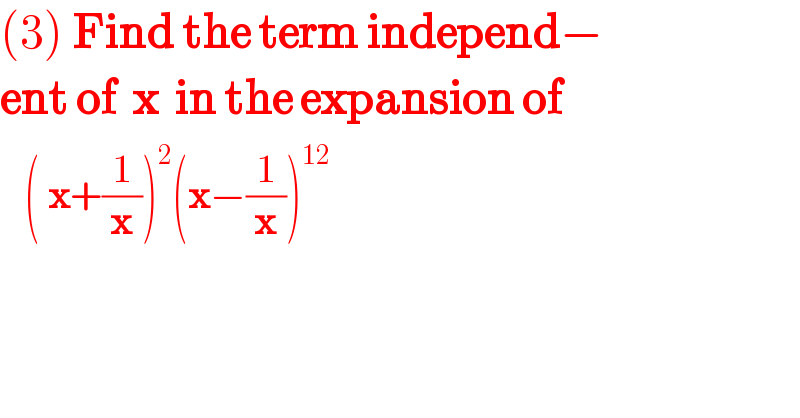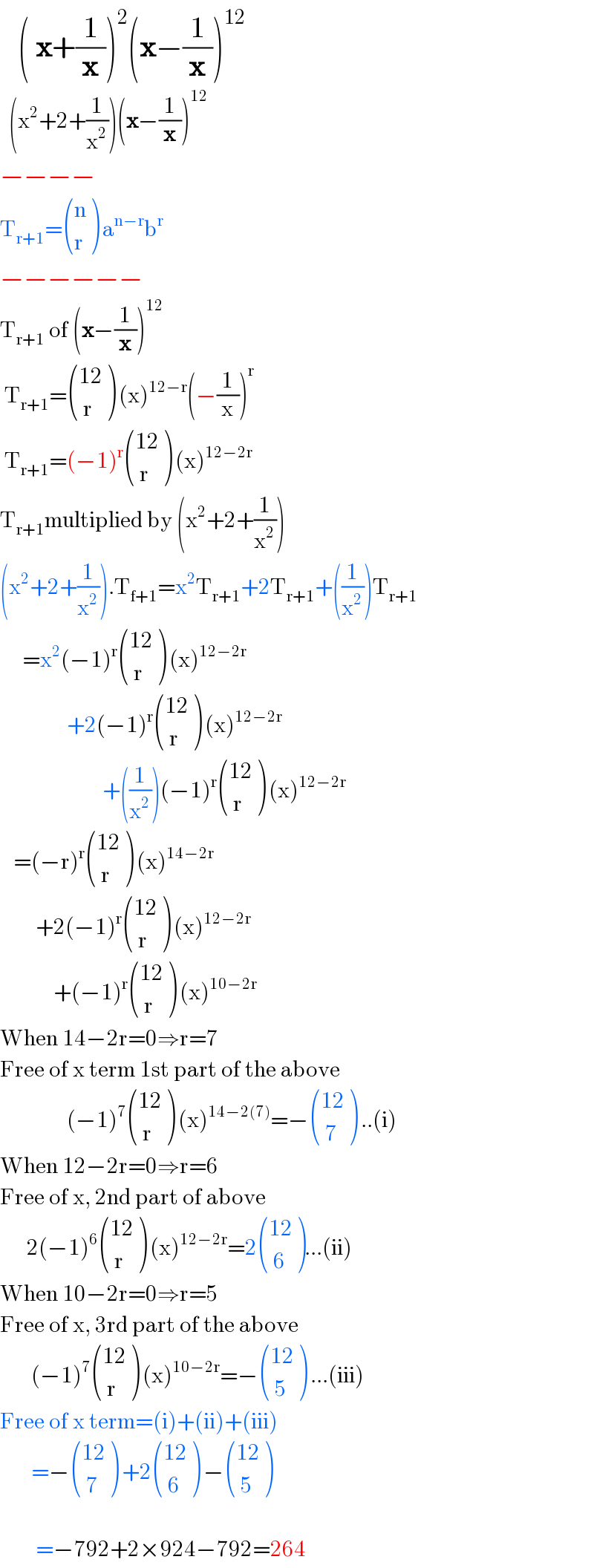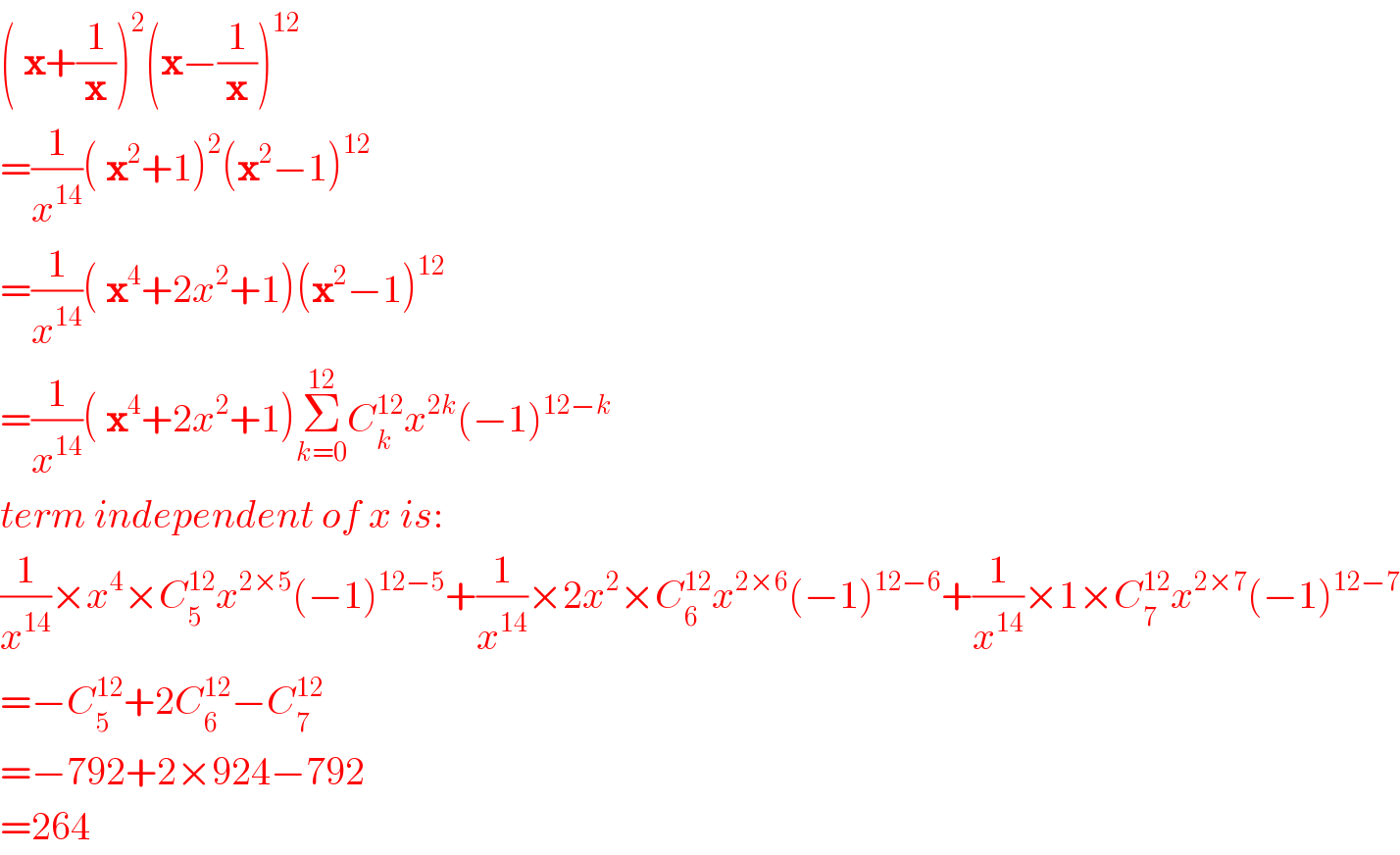
Question and Answers Forum
Question Number 27884 by das47955@mail.com last updated on 16/Jan/18

Answered by Rasheed.Sindhi last updated on 16/Jan/18

Commented by Rasheed.Sindhi last updated on 16/Jan/18

Answered by mrW2 last updated on 16/Jan/18

Commented by mrW2 last updated on 16/Jan/18

